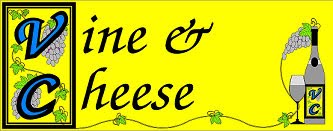In recent weeks we have discussed the Languedoc region of southern France for the purpose of examining estate wines like Chateau Puech Haut and Val de Salis and in our July 14th installment we juxtaposed Languedoc and Bordeaux for the purpose of contrasting production of Merlot, Bordeaux being more estate-driven production and Languedoc offering more bulk production for mass market-labelled wine. This weekend we are tasting the wines of David Harris and Blackstock vineyards and much of what we have been discussing recently pertains here also.
David Harris is the finest winemaker in Georgia. His wines have been served on the governor's table as representative of what Georgia's capabilities are in fine wine production. When you talk to David about his craft, you get a philosophical discussion of what winemaking is. For him, "place" is of ultimate importance and grape type and wine style are secondary. One might say the wine is made in the vineyard and the winemakers would be well advised to accept a supporting role.
According to Georgia law, in order for a wine to be labelled "Georgia" Merlot or whatever, it has to be 75% Georgia juice. This is actually a good protection for the wineries in the event of a catastrophy like the Easter frost of a few years ago. If a Georgia wine is labelled "American" Chardonnay or whatever, it may by law be 100% California juice. You begin to see the problem. Moreover, being a small government state, enforcement of these laws is weak, so one producer's great red wine labelled "Georgia" production may actually contain a substantial amount of premium California Syrah.
David Harris is one of the few producers in the state that mandates 100% estate production and finds the controversy to be ironic. Being a classically trained winemaker out of the University of California system, David recognized correctly that the White/Lumpkin county area might be right for wine grape growing and now sees how it really has become its own appellation due to the regional character of the wines; the reds are earthy and the whites are minerally. The Appalachian Mountains offer a granite sedementary soil that imparts its mineral content to its grape vine production making our local wine production unique. The irony of course is, why would you adulterate what is here with imported juice?
The irony is compounded by the fact that local wine production is trending even more toward imported juice sourced elsewhere and lower quality juice at that. Two encouraging developments are on the horizon though. With the recognition of wine as part of the dinner table experience as opposed to a cocktail or centerpiece, Georgia production is well balanced, food friendly with good acidity, and it ages well. With regard to the law, Georgia is now legislating food labels that read "Georgia Grown" to protect the onion industry amongst others. Could the wine industry be far behind?
Attend our tasting this weekend and get a 10% discount on Blackstock wines and 20% off on cheese by citing this blog.
Thursday, August 11, 2011
Subscribe to:
Post Comments (Atom)




No comments:
Post a Comment